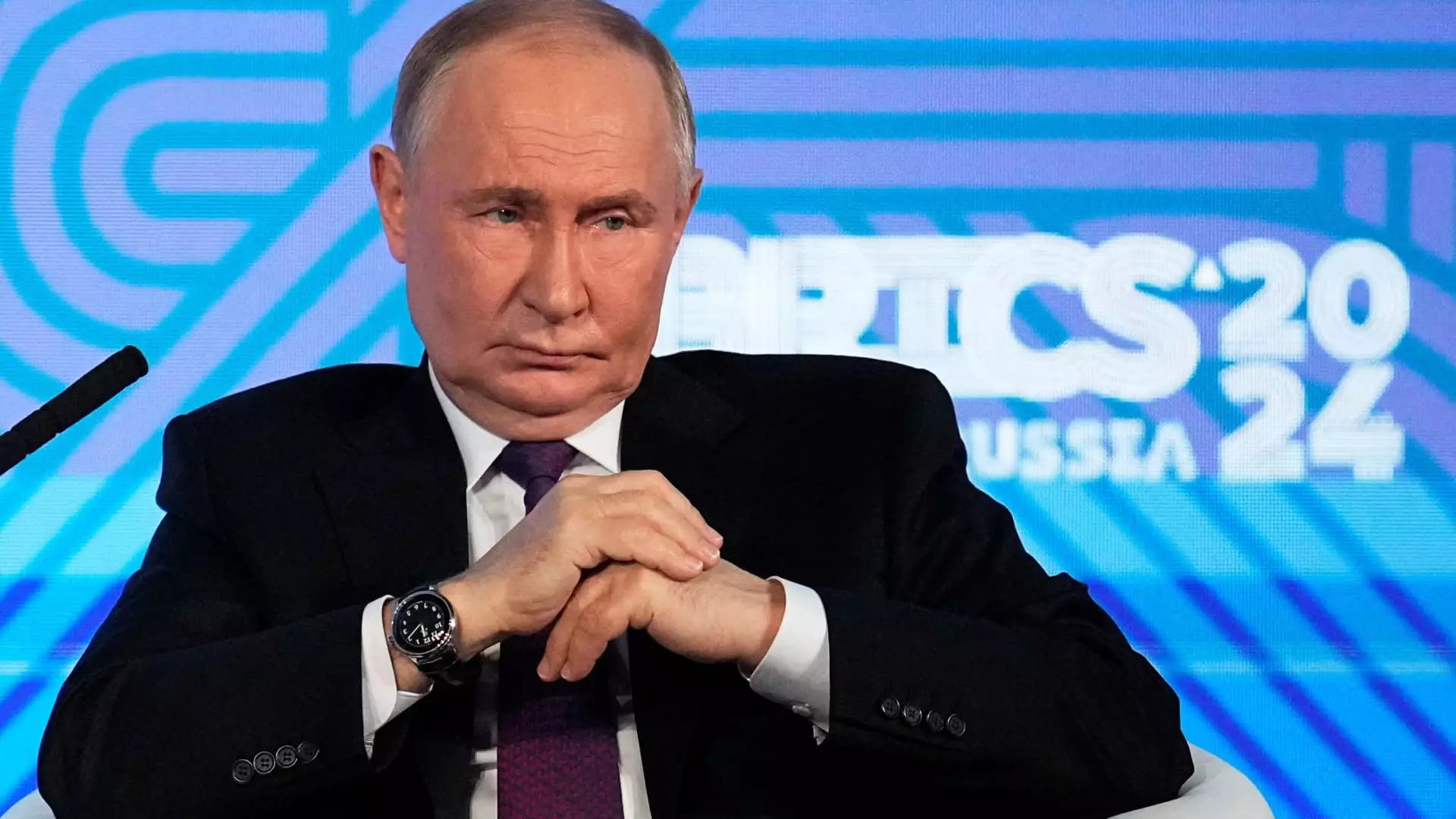In recent years, the BRICS coalition—comprising Brazil, Russia, India, China, and South Africa—has emerged as a formidable bloc in global economic and political arenas. This year, Russian President Vladimir Putin has expressed ambitious visions for BRICS, particularly ahead of the upcoming summit slated for October 22-24 in Kazan, Russia. With the inclusion of Egypt, Ethiopia, Iran, and the United Arab Emirates, the group’s potential impact is set to broaden significantly, further positioning BRICS as an essential player on the world stage.
Shifting Dynamics in Global Economic Growth
President Putin asserts that the BRICS nations will be the primary drivers of global economic expansion in the foreseeable future. This assertion is steeped in the reality that many Western economies are experiencing stagnant growth, while BRICS member nations demonstrate relatively faster economic development. The Kremlin’s narrative suggests that these countries are moving away from reliance on Western markets and financial structures, thereby asserting their own economic sovereignty. This shift indicates a substantial change in power dynamics that could reshape not just economic relationships but also geopolitical alliances.
The anticipated outcomes of the Kazan summit include discussions on initiatives like cross-border payment systems and reinsurance mechanisms—steps aimed at fortifying economic independence from Western systems. These measures reflect a strategic pivot towards self-reliance, particularly in the context of heightened geopolitical tensions and economic sanctions that BRICS members have faced from Western powers.
The Challenge to the U.S. Dollar’s Dominance
One of the most provocative intentions articulated by Putin is the desire to diminish the U.S. dollar’s hegemony in global finance. By suggesting alternatives to the established financial order, BRICS aims to present itself as a counterweight that can provide nations with diversified financial options. Russia’s proposals for a financial messaging system akin to SWIFT, impervious to Western authorities, and the exploration of national digital currencies, suggest a deliberate strategy to alleviate the dependency on Western financial instruments.
This development could lead to a fundamental transformation in international trade and investment flows. The call for extensive use of national currencies among BRICS nations indicates an ambition to establish new, inclusive economic frameworks that promote trade without the constraints imposed by dollar-centric systems. The likelihood of an expanded BRICS membership—30 nations have reportedly shown interest—could further consolidate this alternative economic bloc and amplify its influence globally.
Putin emphasized the role of the New Development Bank as an alternative to Western financial mechanisms, underlining the necessity for increased investment in technology, infrastructure, e-commerce, and artificial intelligence across the Global South. This focus on development underscores BRICS’ aim to not only foster economic cooperation among member states but also to empower developing nations lacking in financial resources.
The proposed physical and digital infrastructure projects, such as the Arctic Sea Route and the North-to-South corridor, further exemplify Russia’s strategic plan to enhance connectivity and economic collaboration between continents. Such initiatives could be pivotal in reinforcing trade routes that connect Asia with Africa, ultimately creating synergies that may drive growth and nurture industrial development.
As the Kazan summit approaches, the implications of BRICS’ ambition extend beyond mere economic collaboration; they challenge the crux of contemporary global order. If successful, these initiatives could lead to a reorientation of global economic relationships and a pronounced shift in alignments. The group’s efforts to position itself as a valuable partner for developing nations and as a formidable alternative to Western financial structures suggest a long-term strategy that could redefine international diplomatic and economic landscapes.
The BRICS coalition, under the guidance of leaders like Putin, is positioning itself as a significant force capable of reshaping global economic paradigms. As it expands and enhances its collaborative initiatives, the evolution of BRICS will undoubtedly be watched closely by both supporters and skeptics alike. The success of this bloc may very well hinge on its ability to navigate internal dynamics while appealing to the broader community of nations seeking alternatives to traditional power structures. The upcoming summit promises to be a crucial moment in this ongoing transformation.

